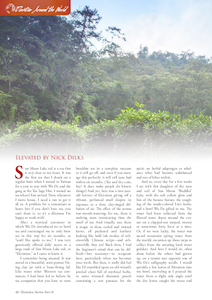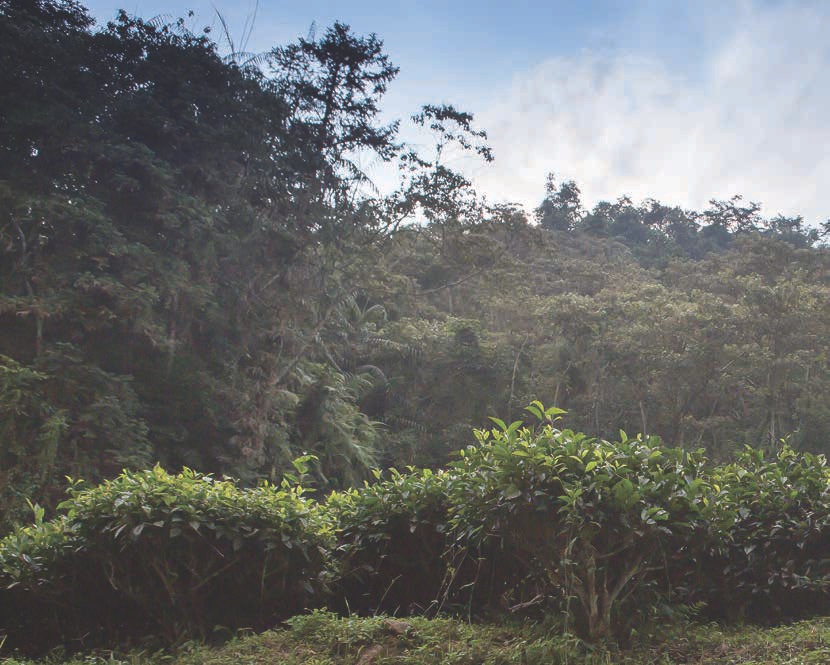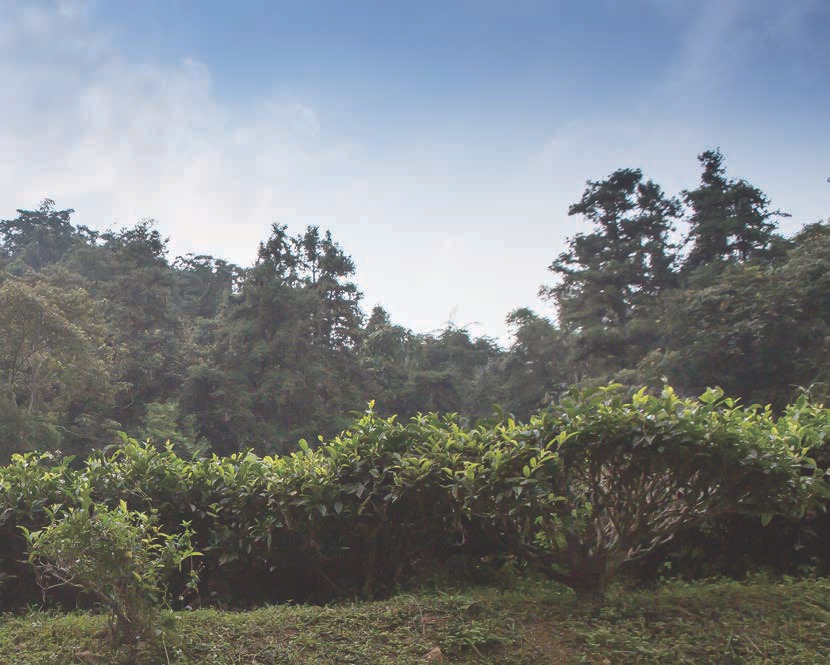
 |
|
Elevated by Nick Dilks
Sun Moon Lake red is a tea that is very dear to my heart. It was the first tea that I drank on a regular basis when I moved to Taiwan for a year to stay with Wu De and the gang at the Tea Sage Hut. I owned no tea when I first arrived. Now, whenever I move house, I need a van to get it all in. A problem for a renunciant at heart, but if you don't have tea, you can't share it, so it's a dilemma I'm happy to work with!
After a mystical ceremony in which Wu De introduced me to bowl tea and encouraged me to only brew tea in this way for six months, or "until She spoke to me," I was very generously offered daily access to a large stash of Sun Moon Lake red, or "Elevation," as I came to know it.

I remember being amazed. It was stored in a beautiful, semi-porous Yixing clay jar with a loose-fitting lid. Like many other Western tea consumers, I had been led to believe by tea companies that you have to store breakfast tea in a complete vacuum or it will go off, and even if you manage this perfectly, it will still taste bad within six months. (Tea and the coin, hey? It does make people do bizarre things!) And yet, here was a two-year-old harvest of Elevation giving off a vibrant, perfumed smell despite its exposure to a slow, clay-tinged diffusion of air. The effect of the aroma was mouth-watering: for me, there is nothing more intoxicating than the smell of tea. And visually, too, there is magic in these curled and twisted leaves, all puckered and leathery looking like bold ink strokes of otherworldly Chinese script - and otherworldly they are! Back then, I had the beginner's mind that can be difficult - but necessary - to recapture later, particulary when tea becomes your work. But then, it really did feel like I'd stumbled upon an old wizard's jeweled chest full of mythical herbs, or some wizened shamanic pouch containing a rare panacea for the spirit: an herbal adaptogen to rebalance what had become unbalanced and out of kilter within.
And so, every day for a few weeks I sat with this daughter of the stars and soil of Sun Moon "Buddha" Lake, with the soft yellow glow and hiss of the butane burner, the soughing of the sandy-colored Lin's kettle, and a bowl Wu De gifted to me. The water had been collected from the filtered water depot around the corner on a clapped-out moped, twenty or sometimes forty liters at a time. Or, if we were lucky, the water was sacred mountain spring water from the weekly excursion up those steps to collect from the amazing local water goddess. And here I would sit, often alone before the others had gotten up, on a tatami mat opposite one of Wu De's calligraphy scrolls. I would sprinkle a few leaves of Elevation into my bowl, marveling as I poured the water from a slight side angle until the dry leaves caught the water and began their swirling dance. I used to love watching as the liquor turned by alchemy to a potent, chocolaty amber.
Since those days, I have returned to the UK and regularly share tea with people up and down the country. Elevation has been a real favorite with the regulars from the start, perhaps because it offers the familiarity of the breakfast tea we Brits consume in such massive amounts - and then offers so much more, too! It has been a real gift for me to sit as the host and watch so many guests experience Elevation for the first time.
It has also been an interesting lesson in equanimity to experience the vicissitudes of the harvests and production and how these affect the experience of drinking a tea when I eagerly unwrap the latest package from Taiwan, put the kettle on, and try out the new leaf. One harvest I got from another source definitely was not the special Wu-De-Elevation I used to get when I was in Taiwan! And then one year's batch seemed considerably weaker in Qi due to a lack of rain, I later learned. It was interesting to note the ego's initial disappointment and then have this recede as I let go into appreciating what was here now in my bowl, not stored somewhere as a peak experience in memory. One of the characteristics of living tea is that the land is irrigated naturally, so in a year of little rain, of course the leaf will be affected. And one of the ideals behind drinking bowl tea is that we try to appreciate every bowl with equanimity. As I sipped the new harvest, slipping into the smaller mind that compares and contrasts, I would eventually be brought back by the leaf to remember the broader picture: the farm workers struggling in their toil, loving their land and not taking the shortcut of tampering with Nature in ways that destroy its natural harmony. As this crosses the mind, how can there be anything but gratitude for what is before us? That said, it is hard to turn off the sensitivity that one cultivates through gongfu tea at times!
Only yesterday, I sat with ten people and we started the day by sprinkling some Sun Moon Lake leaves into bowls and watching them swirl around with the same ecstasy I'd witnessed on my own in Taiwan. I noticed a great happiness as I saw the Elevation leaves speak to some of them in the same way they speak to me. I was reminded of the words of the tea poet, Baisao, serving tea on the banks of the river Kamo many years ago:
They drink a cup of tea. Their long sleep is over: Awake, they realize They're the same as before.
Thank you, Mr. Shu, for this amazing tea, and thank you, Wu De, for finding it and introducing it to me and to so many of us around the world!
